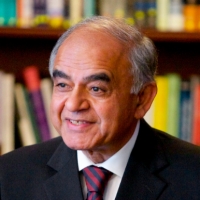The Tragic Dilemma of the Indian Voter
Being neither a Modi fan nor a Modi hater is a position many Indians find themselves in.
May 12, 2019

I lost my friends on the left when I voted for Modi in 2014. And I lost my friends on the right when I criticized Modi’s sudden move toward demonetization and also denounced him for polarizing the nation and weakening our institutions.
When I didn’t have any friends left, I knew I had arrived at the right place.
Five years later, I am disillusioned. Modi’s promised jobs have not come, but nationalism has — and India has changed for the worse. With the election process ongoing, I don’t know who to vote for.
I don’t have confidence in Rahul Gandhi and I am mortally afraid of the chaotic coalition that offers nothing except to remove Modi. My consolation is that many middle-of-the-road Indians find themselves in the same, tragic place.
Little progress under Modi
Five years ago, I was also discontented. Inflation in India was high, growth was declining and there was massive corruption and paralysis in the government. I was concerned that India might miss the bus again.
True, it had a limited opportunity called the “demographic dividend.” If those reaching the working age could be employed, the nation would be gifted with a bonus to its GDP growth.
The moral — and eminently political — imperative for the next leader was to create the conditions for new jobs. Otherwise, this opportunity would disappear, as India too will begin to age.
As I examined the candidates on offer then, I decided that Modi was our best hope. It was not an easy decision. Hindu nationalism had never appealed to me. I was aware of Modi’s dictatorial tendencies and the risk to secularism.
I did not gloss over the stain of Gujarat 2002, but I argued that if India failed to create jobs, we would lose another generation. It was bad enough to have lost two generations to the Licence Raj from 1950 to 1990.
I felt India’s democratic institutions were strong enough to prevent a dictatorial state and Modi seemed to have learned a lesson as Gujarat had been quiet since 2002.
Jobs are nowhere in sight
In 2019, I am disappointed because jobs are nowhere in sight and there is distress among farmers. Otherwise, the economy has been managed reasonably well. India’s fiscal deficit has declined, inflation has dropped to a record 2%-3% and infrastructure is improving.
Because of Modi’s obsession with digitizing the state-citizen interface, corruption is also down. His main reforms — the Bankruptcy Code, the Goods and Services Tax and Direct Benefit Transfers — will bring huge benefits in the years to come.
Demonetization, alas, was a disaster. However, the much-awaited Goods and Services Tax has finally happened. Although poorly implemented, it is a game changer.
The Bankruptcy Code will make a big difference as assets are more productively employed in the future. Over 300 million Indians now have bank accounts, cell phones and a unique identity and mobile banking is taking off, making it possible for a gradual conversion of leaky government subsidies to cash transfers.
Similarly, transactions between the citizen and the state are moving online. This is the reason that India’s rank jumped 30 places in the World Bank’s “Ease of Doing Business” index.
Despite these achievements, I am unhappy with BJP’s majoritarian politics. India’s institutions have weakened. I no longer trust the GDP and job numbers. I find BJP’s obsession with nationalism unpleasant.
Verdict on Modi
Modi is not the transformative leader I had hoped for. Specifically, he did not leverage his historic majority to reform vigorously. Ironically, he has turned out to be weak.
For example, had he reformed the distribution of farm commodities, some of the present distress could have been avoided. Similarly, he could have used the banking crisis to privatise the worst public sector banks, which I am afraid are going the way of Air India – i.e., into bankruptcy.
Why has Modi failed to deliver?
It comes down to poor state capacity and excessive reliance on the civil service. Modi announced too many programs and those that mattered, like jobs, got lost.
To create productive jobs, India has to become more competitive. Pessimists need to be reminded that global trade amounts to $ 16 trillion and India’s share is an abysmal 1.7%. If only this could grow to 2.5%. The jobs leaving China should come to India, not Vietnam.
Modi’s sloganeering
When Modi promised “Minimum government, maximum governance,” I expected him to begin the difficult job of reforming of the state. Why does it take 12 years to get justice in our country?
Nothing demoralises a bright, young IAS (=Indian administrative service) entrant more than the fact that a high performer and a low performer get promoted on the same day. As a result, state capacity is weak.
So, who will I vote for in 2019?
The truth is I don’t know. I would have preferred a secular, less statist Modi or a more experienced, proven Rahul Gandhi. Modi will do more for economic and governance reform, but he would compromise the idea of a plural and tolerant India that I deeply value.
It’s a terrible dilemma. Most likely, I will vote NOTA this time, which is a cop out in some eyes. But I am neither a Modi fan, nor a Modi hater. As a centrist, I vote for what is reasonable and pragmatic and not based on bias or on party lines.
Many Indians are in my position, I think, and we are the stuff of democracy.
Editor’s Note: Adapted from an article that originally appeared in The Times of India Group © BCCL. All Rights Reserved.
Takeaways
Being neither a Modi fan nor a Modi hater is a position many Indians find themselves in.
As a centrist, I vote for what is reasonable and pragmatic and not based on bias or on party lines.
Modi announced too many programs and those that mattered, like jobs, got lost.
Modi’s promised jobs have not come, but nationalism has -- and India has changed for the worse.
Modi’s main reforms will bring huge benefits in the years to come. Demonetization, alas, was a disaster.
Read previous

Global Politics
India: A Connected Power
May 11, 2019
